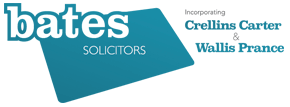Leasehold Enfranchisement
 Leasehold Enfranchisement
Leasehold Enfranchisement
We are one of the leading firms of solicitors specialising in leasehold enfranchisement and we have helped many of our clients to extend the leases of their flats and purchase the freeholds of their buildings.
What is enfranchisement?
Enfranchisement means collectively, with other flat owners, buying the freehold of your block.
I already own my flat, what is the point?
If you own the lease you do not own the flat. Leaseholds and Freeholds are different rights. When you buy a flat you buy a lease, you buy the right to reside in a part of somebodies Freehold property. It is the freeholder who owns the building, When each lease expires the flats revert to him. He can then create a new lease, redevelop etc. When the time remaining on the lease falls below 80 years many high street lenders will refuse to grant a mortgage on the property and so the property value declines.
Advantages of owning the freehold
- The main advantage to buying the freehold is that the leaseholders can extend their leases and reduce the ground rent to a peppercorn without needing the approval of a third party.
- New leases can also be used to address the issues on non compliance with your Mortgage Lenders requirements
- It gives you control of management of the building
What flats qualify for enfranchisement?
- The “qualifying tenants” must own at least 2/3rds of the flats in the building
- The leases must have been originally granted for terms of at least 21 years
- A qualifying tenant cannot own more than 2 flats in the same building
- The participating tenants must be qualifying tenants and must own at least half of the flats in building (and not less than 2 flats).
- A Leaseholder cannot participate if he owns three flats or more in the building.
- If the building is partly non-residential, Leaseholders cannot enfranchise if the non-residential element is more than 25% of the building.
- A building converted into four flats or less with a resident landlord may not qualify for enfranchisement.
How much will we have to pay for the freehold (the premium)?
Dependent upon whether leases have more or less than 80 years left to run and whether all of the qualifying tenants participate, the calculations will involve capitalising ground rents amongst other things. These figures can vary and only a surveyor with the appropriate experience can advise you as to the likely spread of prices you can expect to pay. It is essential that you have a proper valuation, as the price you propose in your initial notice to your freeholder must be “realistic” – i.e., you can’t simply put a nominal figure forward and then negotiate later
What is the Procedure?
The leaseholders acting together usually form a company to hold the title. The company serves notice on the freeholder specifying the premium proposed. The freeholder has two months to reply to accept the right to the lease extension or dispute it. The freeholder can only dispute the right on very narrow grounds.
Usually negotiations take place between the parties on the premium to be paid, the rights to be granted and the provisions to be contained in the conveyance. The statute allows six months for the terms to be agreed or either party can apply to the Tribunal for them to determine the terms.
The conveyancing procedure is then followed to transfer the freehold into the name of the leaseholders’ company and registered at Land Registry.
How can Bates Solicitors help you?
If you are a freehold owner served with a collective enfranchisement action we can assist in making sure the procedure has been correctly followed and the claim is valid or advise you to dispute the claim.
If you are a part of a group of leaseholders we can act for you in making the claim and act for you in extending your leases once you have purchased the freehold. We will advise you of your legal rights, tell you what you need to qualify, prepare the calculations required and then guide you through the process of serving notice on the landlord.
